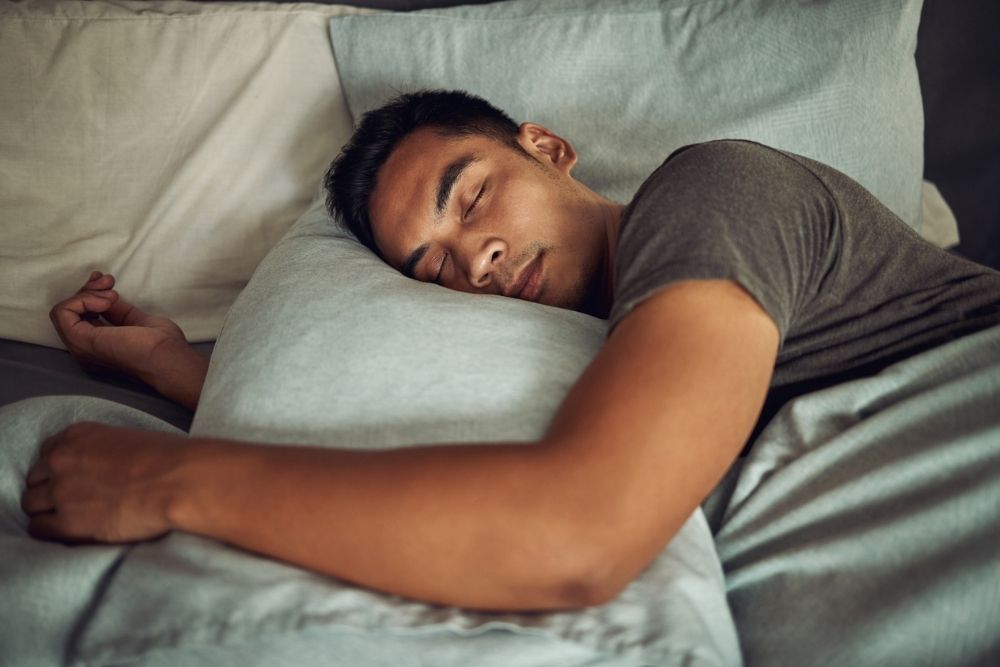How tired are you right now?
Maybe you are not tired at all. Perhaps you got a good night’s rest and are energized for anything that comes your way today.
Or maybe you are a little bit tired. You might be considering an energy drink or a second (or third!) cup of coffee to help you power through the rest of the day.
Or maybe you are really dragging today. Perhaps you got to bed too late or got up too early—or both. Maybe you had bad dreams or woke up several times over the course of the night. None of those things set you up for a good, productive day. Instead, you find yourself struggling to concentrate and yawning uncontrollably.
The truth is far too many of us do not get the sleep we need to stay healthy. That is a problem for anyone in that situation, but it is particularly problematic for a person who is in recovery from a substance use disorder. That is because sleep supports your ongoing recovery, while a lack of sleep can undermine your recovery efforts.
Because sleep is such an important pillar of recovery, we have written about the subject before. In this blog post, we are going to revisit three of our previous blog posts on the topic of restful sleep. We will link you to the original posts as well, because if you are in recovery, you truly have to take sleep seriously.
Some Nighttime Tips
One of our entries about sleep and its importance focused on tips for things you can do at night to increase the chance that you will get the amount and quality of sleep you need. Those tips included:
- Setting a consistent bedtime—and a consistent time to wake up. Your body and brain will internalize this schedule.
- Setting your screens aside well before your bedtime. Screen time undermines sleep, so unplugging about an hour before bed is a good idea.
- Creating a nighttime routine that eases you toward sleep. There are lots of options (including journaling, reading, stretching, taking a relaxing bath, and more), so develop a routine that works for you.
- Setting up a sleep-friendly environment. Clean, uncluttered, cool, dark, quiet spaces serve your sleep well.
- Avoiding tossing and turning. Don’t toss and turn. When you are having trouble getting to sleep, it might be useful to get up for a bit and try a quiet activity until you start to feel drowsy.
Some Daytime Tips
In a companion post, we provided some daytime tips to complement our nighttime suggestions. Those daytime ideas included:
- Keeping control of the caffeine. You do not want to be too amped up when it is time to rest, so limit caffeine consumption after noon.
- Getting out into the sunlight. Sunlight helps regulate your circadian rhythms, which are important in nudging your body and brain ready to sleep on a regular schedule.
- Making good eating choices. In general, foods that are spicy, fatty, heavy, or fried can work against your efforts to get quality sleep.
- Getting some exercise. Exercise can shorten the time it takes to fall asleep once you have gone to bed.
- Saying no to naps and to sleeping late on the weekend. Getting into the habit of taking naps or sleeping in can upend your normal sleep cycle, which in turn can cost you much-needed rest in the long run.
Sleep Is One of the Big Three
These lists of tips have included advice about healthy eating and regular exercise, but we want to emphasize how those two practices and restful sleep go hand in hand for a person in recovery from a substance use disorder. We considered all three together in a blog titled “Bring Together the Trio of Exercise, Nutrition, and Sleep.” We wrote, in part:
In pop culture, there are all kinds of examples of trios who are central to the success of a television program or movie franchise (think Harry, Ron, and Hermione; or Blossom, Bubbles, and Buttercup; or Kirk, Spock, and McCoy, among many others)…[S]ometimes three things together add up to more than the sum of their parts. For example, when it comes to boosting and protecting your physical health, your mental health, and your hard-won sobriety, there is a trio that is hard to top. That trio includes regular exercise, good nutrition, and restful sleep.
The Original Entries Are Worth Your Time
We encourage you to follow the links to the original blog posts from which this entry was drawn. Each provides more information and ideas for ensuring that you can consistently get the sleep you need to support your overall wellbeing and your ongoing recovery.
We Are Alert to Your Specific Needs
At The Farley Center, located in Williamsburg, Pennsylvania, we provide personalized, evidence-based care for individuals struggling with a substance use disorder. We also treat co-occurring mental health disorders that may be contributing to your difficulties with drugs or alcohol. We will see you through medically supervised detoxification and our in-depth rehabilitation program. After treatment comes to an end, you can count on us to continue to provide support and resources as your recovery journey gets underway. When you are ready to wake up from the nightmare of a substance use disorder, we’re ready to help.


